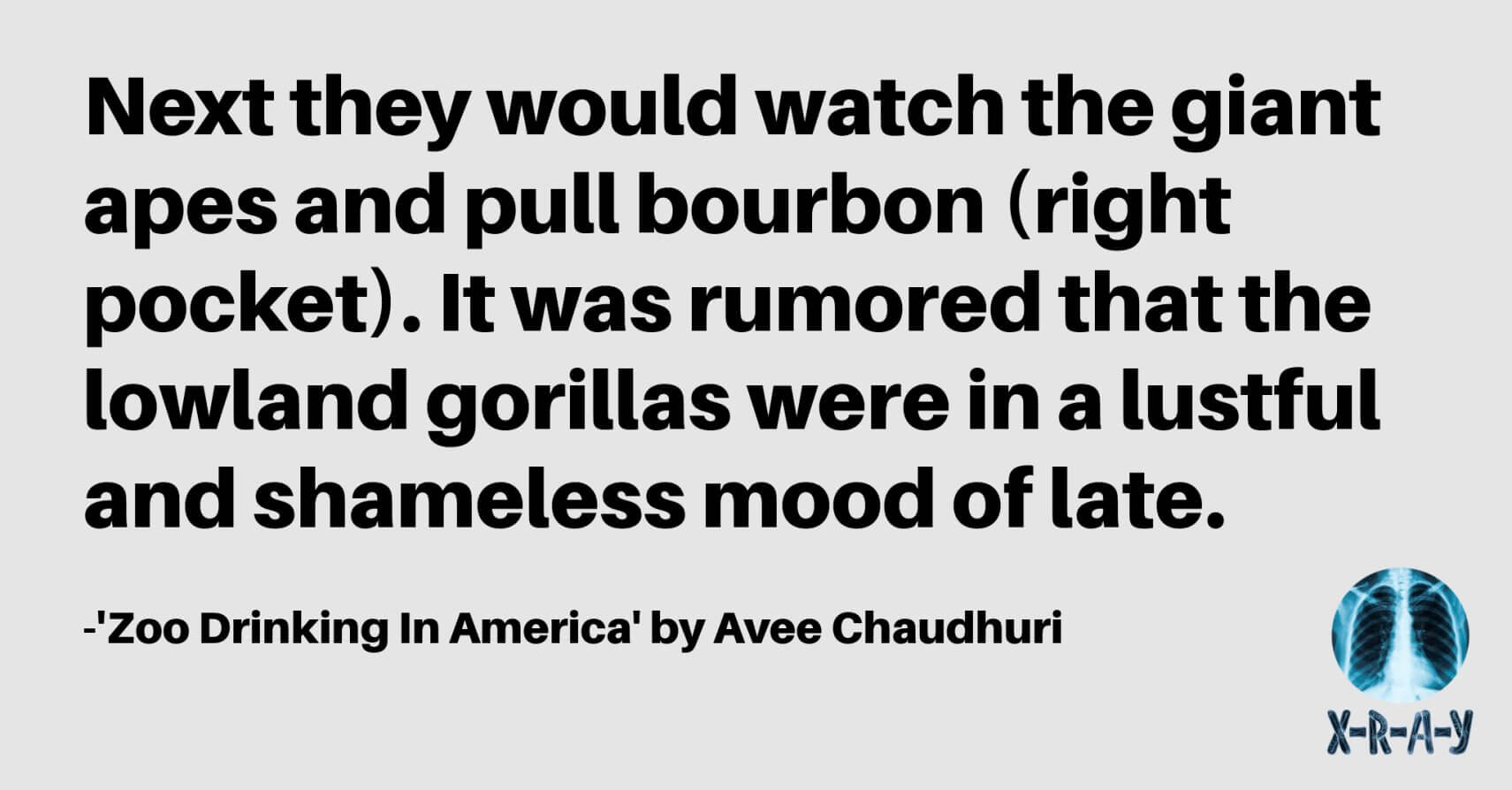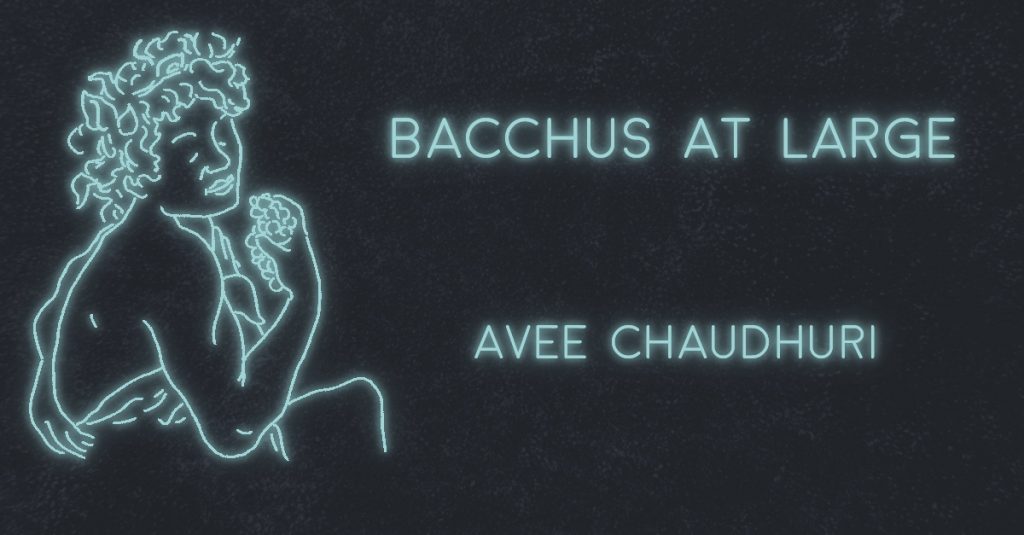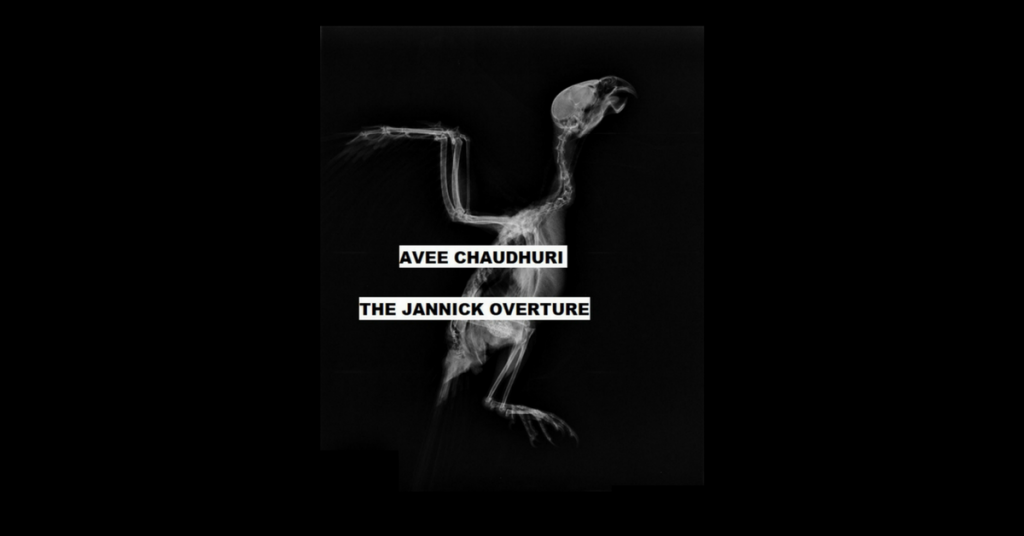
ZOO DRINKING IN AMERICA by Avee Chaudhuri
Dutta placed a map of the zoo on the wall and reviewed the group’s itinerary. First they would shotgun beers in the parking lot, then visit the reptile house. There, they would shoot rum (hip flask left pocket) and handle the sloughed snake skin on display very delicately so everyone else would think they were respectable patrons of the Lincoln Children’s Zoo. Next they would watch the giant apes and pull bourbon (right pocket). It was rumored that the lowland gorillas were in a lustful and shameless mood of late. At this point they would purchase concessions to reduce the…




